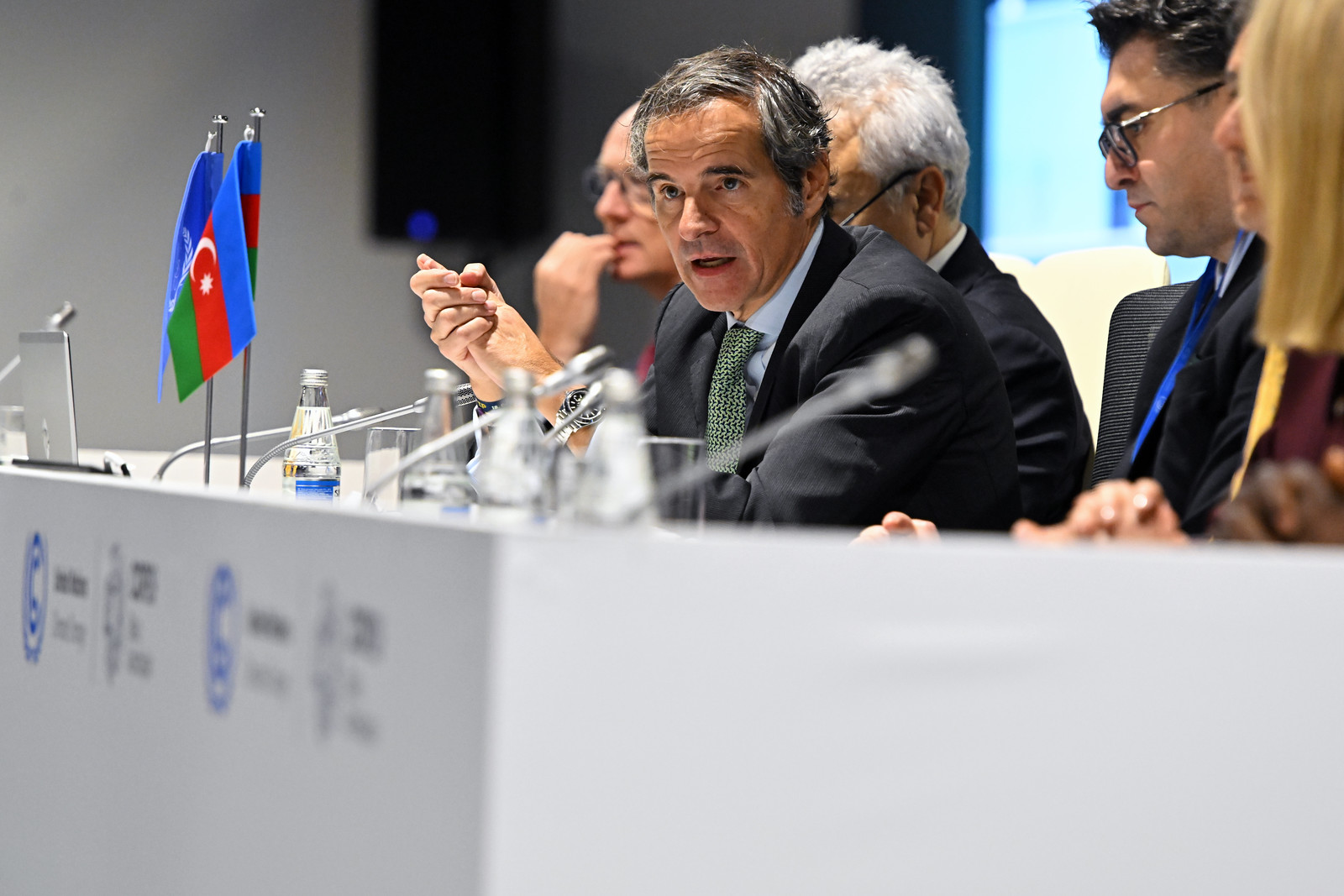Head of nuclear energy organisation called for concrete steps at Baku Climate Change Conference
At UN’s Climate Change Conference COP29 in Baku, Azerbaijan, discussions about the future of the climate of our planet were conducted at the very top level. Nuclear was not left in the sidelines at the Conference, even though the outcome of the meeting remained lackluster.

Director General Rafael Grossi of the International Atomic Energy Agency IAEA naturally also voiced an opinion on the future of nuclear.
-Nuclear energy is critical to keeping the 1.5°C goal within reach, and it’s time we collectively unlock its full potential, the Director General of the UN organisation IAEA stated.
Grossi called for a shift from talks to concrete steps.
-If past COP meetings brought nuclear from the sidelines to being part of the solutions, this year it’s time to shift from agreeing what’s needed to finding ways of getting it done.
Money rules
Grossi reminded that many more steps are still needed for a successful outcome: regulation streamlining, skilled workforce, and harmonised policies. He also stressed the significance of financing.
It is known that when talking about nuclear power, we talk about big money.
According to Grossi, investments in nuclear energy globally amounted to about 47 billion euros in 2017–2023. This means that the total price tag of tripling the nuclear energy capacity by 2050 would be about 150 billion euros.
That is a lot, admitted even Grossi. On the other hand, he had a very apt comparison.
- It is still just a tenth of what is needed every year to triple renewable capacity by 2030, the Director General said with emphasis.
Last year’s promise produced development in right direction
The tripling of nuclear was one of the key results of last year’s Climate Change Conference in Dubai. Some 25 countries, including Finland and Sweden, publicly committed to the goal at the time. The essence of that was the tripling of nuclear from the 2020 level by the year 2050. The commitment was also signed by the leading nuclear power countries, such as Japan, Great Britain, France and the United States.
Recently we have had more positive news. In September this year, 14 major banks and financial institutions expressed their support to nuclear energy. The year has also been characterised by the announcements of global corporate giants, including Google, Microsoft, and stock exchange riser Nvidia, on investments in nuclear.
A rare occurrence – backed by both Democrats and Republicans
The support awarded to the nuclear energy boom in the United States was also evidenced by the ambitious roadmap to triple the nuclear power capacity of the country by the mid-century, published by the White House on the eve of the Climate Change Conference. That would mean an increase of up to 200 Gigawatts (GW) in nuclear energy production. Another point worth mentioning is that USA looks to achieve a 35 GW increase already by 2035.
And although this plan has been prepared by the Biden administration, there is a rare consensus among the famously divided US political leadership. Additional construction of nuclear power is supported by both Democrats and Republicans and even President-elect Donald Trump voiced strong support for increased nuclear power several times during his campaign.
Text: Ville Kulmala
Photo: Dean Calma / IAEA
Share